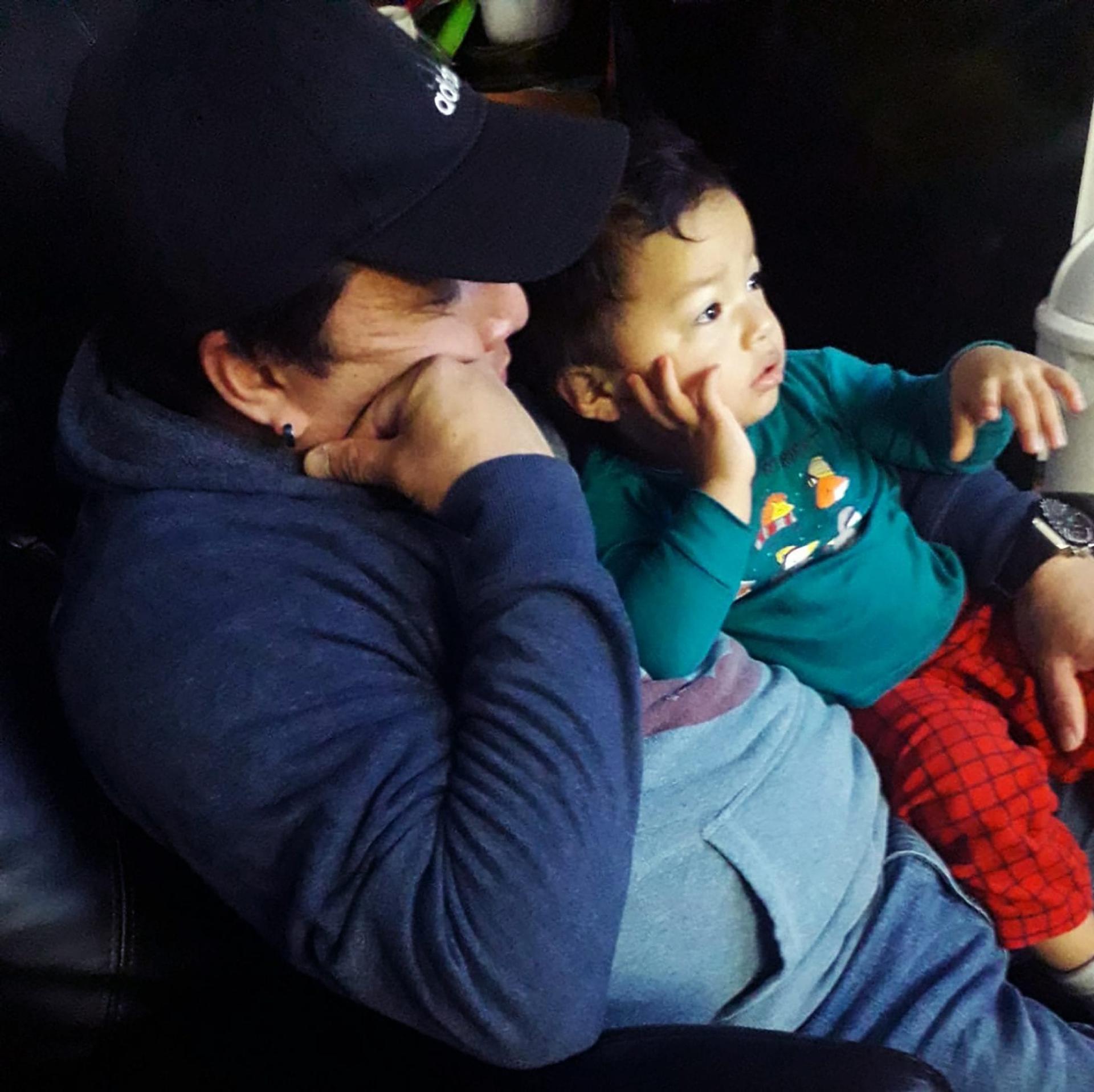WASHINGTON, D.C. — Before Juan Vasquez says goodbye to wife Tanya Granillo de Vasquez and 1-year-old son Robert as he goes off to work each morning, the three gather and then the husband and wife pray.
“Faith is what’s important at this moment,” said wife Tanya. “We give thanks and then we ask for protection … I ask that he (Juan) be returned to us as he left, to come home to a family that waits for him.”
In the age of the coronavirus, grocery store workers, like Juan Vasquez of Uniondale, New York, have become unlikely heroes around the globe, the only lifeline to the outside world for many, and the ones who keep quick access to food and products essential to daily survival — a role that, like agricultural workers, was never celebrated, until a virus brought the world to a halt.
It was a role that never seemed dangerous — until the coronavirus arrived.
“They’re not just exposing their lives to help other people, but they’re also doing their best to not expose (their families),” said Tanya Vasquez in a March 28 WhatsApp audio interview with Catholic News Service.
Because both Vasquezes are Catholic and have a special devotion to Mary, they ask for her intercession, not just to keep the head of the household free of COVID-19, the disease the virus causes, but for the protection of the whole family. Prayer and faith are the only weapons to survive the painful and anxiety-driven day that has become part of their daily routine, Tanya Vasquez said.
“Believe me, I feel as if I’m discriminating (against) him,” Tanya Vasquez said. “But it has to be done.”
Every night that he returns home from work, she makes him put his shoes inside a bag at the bottom of a stairwell before he walks up to their apartment wearing socks and sends him straight to the shower, putting whatever he’s been wearing that day inside another bag that is quickly closed, then he showers for about 30 minutes, Tanya Vasquez said.
“It makes me very sad because our son sometimes waits for him by the window and can see him come home from there,” she said. “He jumps up and down when he sees him but now he can’t go directly to him, or me. No hug, no kiss. He goes straight to the shower.”
It’s become almost a somber experience, one filled with worries about bringing the current dangers of the outside world in, and a change from the usual routine for the toddler who’s attached to his father, Tanya Vasquez said. But once he’s finished taking a long shower, her husband makes every effort to “return to normalcy” with their son and plays or watches TV with him, she said.
“It’s a complicated situation and people don’t understand that anguish,” she said.
It’s an anguish that lasts throughout the day. Even his break, an innocuous moment before the virus, now can be a cause for worry, Tanya Vasquez said. Sometimes, small talk includes the details that the market is full of people that day, or her husband tells her that he was nervous because someone touched him, someone got too close and yanked his clothes to ask for the location of a certain product, she said.
Vasquez said she regrets heeding information that authorities gave out early about not getting masks, not hoarding protective material, which she would have bought her husband early on, and it would have lessened her worries. Information, however, kept changing, she said, and as more data came out, materials she could have bought to offer him some form of protection between him and a daily contact with people were sold out.
Luckily, the grocery store where he works offered the workers gloves. And because she knows how to sew, she figured out how to make a mask that he now wears, even though she said it may not offer the protection she would prefer.
“We said we didn’t want to hoard, but we believed what we were being told. That was a mistake,” she said. “And then things really got out of control.”
Ironically, because her husband works in a market, the two had a discussion about not hoarding food and other materials so that there would be enough for everyone in their community. That, too, worked against them. So, he keeps an eye out for some items that are scarce and picks them up if he sees them on his way home. But they still refuse to hoard, she said.
“That’s how it’s worked out,” she said.
And yet, she stills believes that powerful intercession from above will help the family get through, no matter what the outcome, though the looming fear that he’ll contract the virus, and worse, bring it home, is constant.
Economically, the family couldn’t survive without his job, she said, a hard reality to gulp down because selfishly she would love nothing more than to see her husband enjoy the time with family, particularly with his son, who would be “overjoyed” to have his father home. Others, however, have that blessing, she said.
“This is very complicated,” she said. “To watch other people safe at home while others aren’t. To me, people like my husband, and I’m talking about a lot of people, are heroes because they’re putting their lives at risk.
“And then there are people out there on the street (for no good reason), without a conscience, while others are forced to leave their families to help,” she added. “If they have the blessing to have free time, all I ask is that they realize that during that outing, they could contract that virus and harm others. I ask that they not be selfish and to think of others.”
















